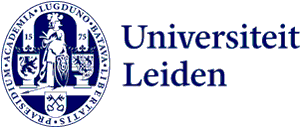
Will the new plans steer us out of the nitrogen crisis? Expert Jan Willem Erisman explains
They were eagerly awaited: four letters from five ministers that should provide clarity on how to get us out of the nitrogen crisis. Nitrogen expert Jan Willem Erisman explains the plans. And says whether they will get us out of the nitrogen crisis.
What is the main theme of the letters?
‘A scheme making it attractive for farmers to quit, relocate or switch to organic or “nature inclusive” farming. Farmers will be able to sign up for this in 2023 if they meet certain criteria. These criteria will be announced in January.
‘The ministers are sticking to this being voluntary. If you revoke permits because of nature loss, you won’t be allowed to allocate the nitrogen quota that is freed up to new developments if these are detrimental to nature. If farmers give up their permits voluntarily, this doesn’t apply and you can use part of the quota for economic development, such as house and road building or energy projects.’
What else do the letters say?
‘Another important aspect is the agricultural agreement (landbouwakkoord) that has to be concluded at the end of March between the government, agriculture, parties in the agricultural value chain and nature organisations. The agreement has to include a vision of the future role of agriculture in the Netherlands and a consensus on a joint approach.’
‘Any hint of regulation or standardisation provokes questions and emotions.’
‘The letters are also about how soil and water should become guiding factors in spatial planning. Raising water levels in peatland areas has many advantages. It stops subsidence, greatly reduces greenhouse emissions and limits nitrogen deposition because it becomes difficult to keep dairy cattle in wet grasslands.’
What do you think of the plans?
‘The letters are full of intentions on the role of consumers, the parties in the value chain and industry, and the obstacles to permits and construction. We now understand the situation but that isn’t enough to achieve concrete steps. The stumbling block is that nature and permits can’t wait any longer but you need time to develop a vision and approach together with the farmers. And trust is an essential part of these negotiations. The question is whether that trust is there because the buy-out scheme and any hint of regulation or standardisation provokes questions and emotions.
‘So there are risks to the government’s approach. The question is whether it is once again putting too much faith into a scheme with generous compensation. If the results are disappointing, mandatory instruments will have to be used after all. This will mean gains for nature but no room for permits.’
‘The chances are high that at the slightest setback thing will more or less grind to a halt.’
Will these plans get us out of the nitrogen crisis?
‘There are reports that many farmers are fed up or have no successor, which means they want to be bought out. But will they meet the criteria that will be announced in January? And if they don’t, they will still have to take measures. The agriculture agreement could fail too, making protests very likely and farmers unlikely to take steps. Finally, a great deal of capacity is needed to hold the talks, support farmers, develop tools, assess conversions and implement schemes. The question is whether this is available.
‘The letters are a good attempt to give shape to Remkes’ line of thinking and to deal with all the rulings by the courts and the Council of State in recent weeks. These shut down all the shortcuts to allocating permits. But the clarity that we were hoping for is still lacking in the letters. Although they’re working hard on this, the chances are high that at the slightest setback things will more or less grind to a halt.’
